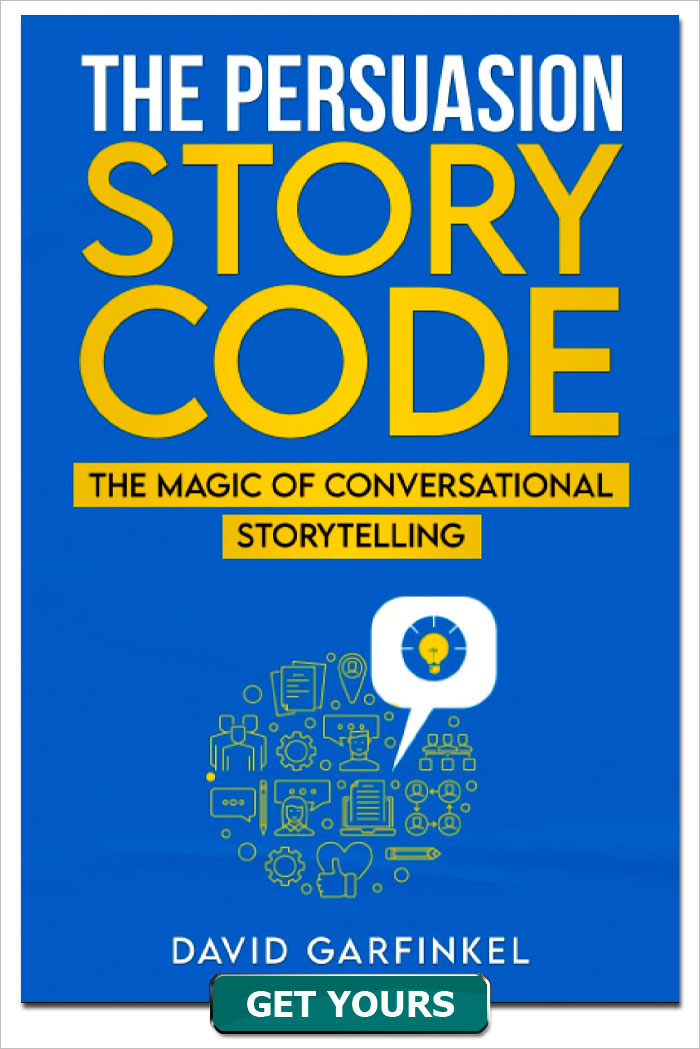Episode 026 - How To Avoid Hype In Your Copy
Published by: David Garfinkel on 10-15-2017
Tweet
With a few years of success under my belt as a copywriter, I started to notice there were two types of clients who were approaching me. The first kind of client was way better at what they did than their marketing indicated. The second kind of client had really exciting marketing that made big, big promises – but their level of quality didn't come close to measuring up.
Once I realized this, I made a decision: I would only work with the first kind of client. I could help them because once their marketing caught up to the quality of what they were offering, they would make a lot more money.
But I was also determined to stay away from the second type of prospect. I wasn't in the business of improving the quality of what they delivered to the prospect. So the best I could do, if I was successful, would be to increase the level of fraud in their marketing.
No thanks.
And that brings us to what we're going to talk about today: hype. It was hype in the marketing of the clients I didn't want to work with that pushed me away from them to begin with. But hype remains an ever-present mystery, and problem, for a lot of copywriters and marketers in a lot of situations.
In this episode, I'll explain why, and what you can do about it.
But first, listen to this:
Copy is powerful. You're responsible for how you use what you hear on this podcast. Most of the time, common sense is all you need. But if you make extreme claims… and/or if you're writing copy for offers in highly regulated industries like health, finance, and business opportunity… you may want to get a legal review after you write and before you start using your copy. My larger clients do this all the time.
What's hype / what's mistaken for hype but NOT hype / what's simply not hype at all
- hype: big claim with no substantiation
- not hype, but looks like it: big claim, with inadequate substantiation
- simply not hype: usually dry, sterile facts. They are true but they don't sell.
Why the hype problem?
- you need a BIG CLAIM and EXCITEMENT to sell
- both can be either negative or positive
Problem #1: When copy's "too mild"
- true, you could never be accused of being hypey
- the problem is, "mild" copy almost never sells. You need to be aggressive and confident enough to get people convinced to buy from you
- so mild copy won't work very well
Example: Money-making skill training
"Too mild" headline: You'll probably make a little extra money when you learn these skills
You're off the hook for overpromising, but, you won't get enough interest or sales with such a tentative attitude.
Problem #2: When copy's too "over the top"
- This, of course, is hype in it's most toxic form
- The problem is, people won't believe it. Or if they do, they'll get disappointed and look for a refund… maybe even seek revenge.
And then there's the problem with the regulators, if they see it…
Example: Money-making skill training
Too "over the top headline"
Make an extra million dollars a month – in your spare time!
It's very appealing, but you're going to run into all kinds of problems with it.
I'm giving very extreme, blatant examples to make the point. Real problems with hype follow the same pattern. And the solution I'm about to lay out works just as well with more everyday hype problems.
The Solution: Deeper research plus extended creativity
- So, let's say you have the same program we're talking about
- You call your 20 best students
- 12 of them tell you they have doubled their income in a few months
- Six of them say they would give you a testimonial or case study
That's the deeper research part. The extended creativity is: brainstorming how you can take that information and put it into your headline.
So you come up with nine headlines that don't quite work.
Your tenth one is:
Many of our students have doubled their income in less than six months.
Here's how you can do the same
That works. It's bold. It's on the edge – but it's not hype. It's true. You can prove it. More than that, you're not saying the prospect WILL do the same… you're saying they CAN.
Because not everyone will. But most people can, if they apply the training.
Bottom line on hype: If you take your promise to the MAXIMUM of what's POSSIBLE… and you let your prospect know that not everyone will do this, but if you follow instructions / do the work / use the method correctly, etc., it's possible for the prospect to do that well.
Keywords: hype free copywriting









